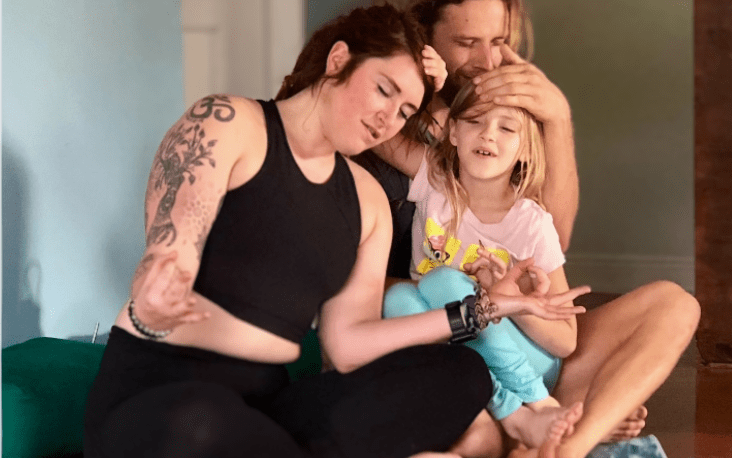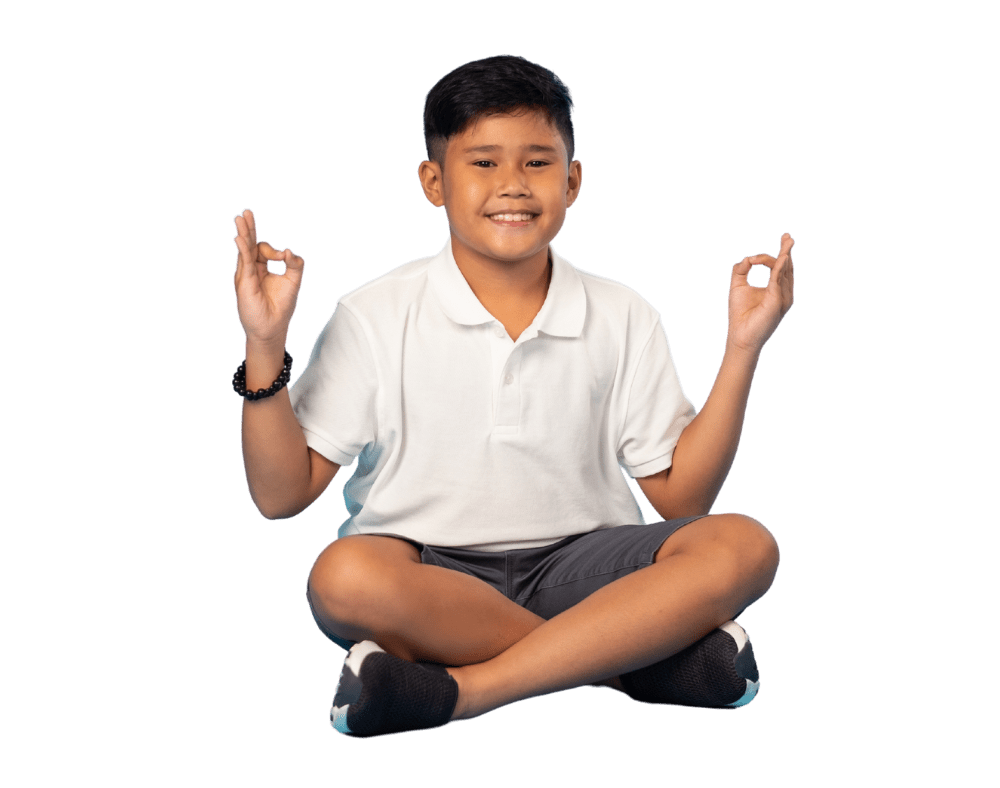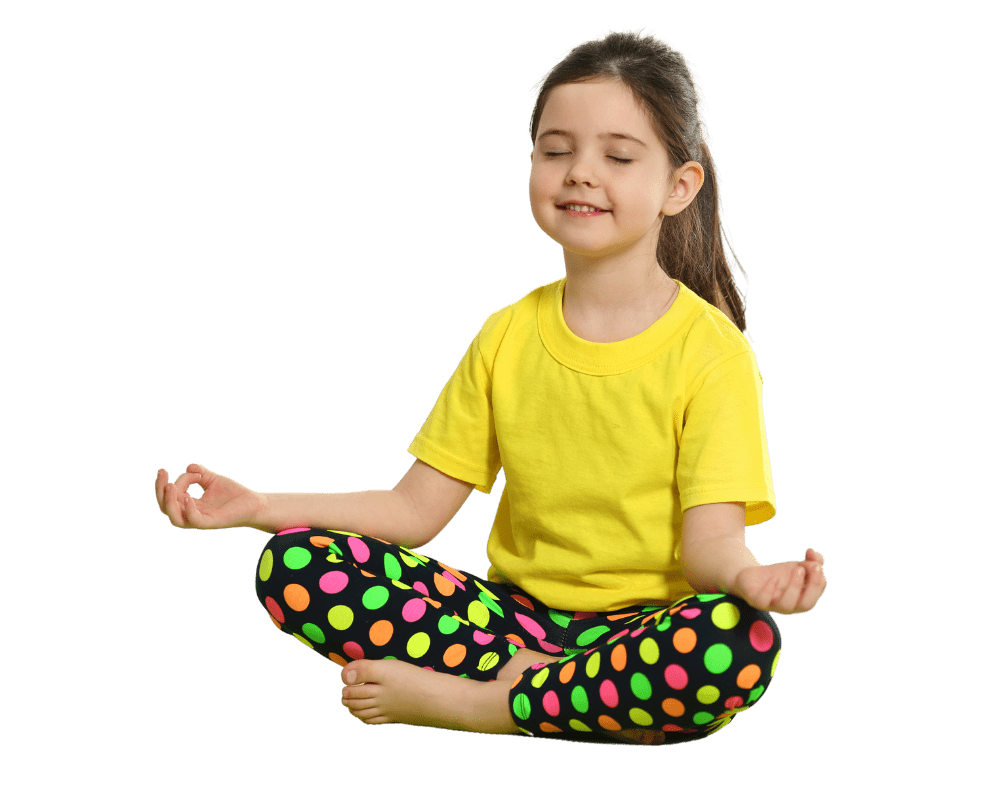The holiday season is often associated with hustle, bustle, and a never-ending to-do list. However, amidst the chaos, it is essential to slow down, recharge, and practice mindfulness. By embracing a more mindful approach, we can fully immerse ourselves in the magic of the holidays while nurturing the well-being of our children, our families, and ourselves.
The busy holiday season has a significant impact on children in the home. It often leads to increased stress levels as they navigate the pressures of participating in holiday activities and managing family dynamics. Additionally, disrupted routines due to changes in school schedules and travel plans can create a lack of structure, which can be challenging for children who thrive on routine. Emotionally, children may experience a wide range of feelings, from excitement and joy to sadness or disappointment, influenced by the emphasis on family togetherness and the expectations of a perfect holiday. To support children during this time, parents and caregivers can prioritize creating a calm and nurturing environment, maintaining consistent routines as much as possible, and fostering open communication about emotions.
The busy holiday season can also have a significant impact on children in the classroom. It often leads to increased stress levels as children try to balance academic expectations with holiday activities. The excitement and distractions associated with the season can make it difficult for them to stay focused, leading to reduced attention and engagement in their studies. Additionally, disrupted sleep patterns due to late nights and travel can contribute to fatigue, affecting their cognitive functioning. Try to create a calm and structured environment, provide stress management techniques, and maintain consistent routines to mitigate the effects of the holiday season on children’s learning and well-being. Things like additional recess, quiet reading and/or journaling could be very helpful when energies are high.
Let us also be mindful of our own actions and embrace the opportunity to inspire our children to lead more mindful and fulfilling lives.
As parents and adults, we play a crucial role in setting the tone and example for the children. Children are keen observers, and they learn by imitating the behaviors they see around them.
By embodying mindfulness and slowing down ourselves, we provide a powerful model for our children to follow. When children witness us being present, engaged, and appreciative of the little things, they are more likely to adopt these qualities themselves. Taking the time to practice mindfulness, express gratitude, and engage in meaningful interactions not only benefits us as individuals but also creates a positive ripple effect on the younger generation.

Here are simple strategies for all of us to navigate this busy time of year:
Parents/Adults:
- Take moments throughout the day to pause, breathe deeply, and engage in activities that bring you joy and relaxation. Prioritizing self-care allows you to recharge and approach tasks with a clearer mind.
- Set an intention to stay present and focused while shopping. Take breaks when needed, pay attention to your senses, and consider supporting local businesses or opting for meaningful experiences instead of material possessions.
- Alleviate stress by simplifying and delegating tasks. Prioritize what truly matters, let go of perfectionism, and delegate responsibilities to share the load. Focus on creating meaningful moments of connection, gratitude, and joy rather than getting caught up in the details.
For children at home:
- Create tech-free zones or designated tech-free hours during the day. Encourage the entire family to disconnect from electronic devices and engage in meaningful activities together. This could involve playing board games, reading books, engaging in arts and crafts, or simply having a heartfelt conversation. By setting aside dedicated time for quality interactions, you will foster a sense of presence and connection among family members.
- Encourage the habit of expressing gratitude by creating a gratitude jar or journal. Each day, family members can write down something they are grateful for and share it during a family meal or bedtime routine. This practice helps children develop a positive mindset, appreciating the little things and cultivating a sense of contentment.
- Encourage mindful eating practices by involving children in meal preparation and planning. Teach them to savor each bite, mindfully noticing the flavors, textures, and smells. Encourage them to eat slowly, paying attention to their body’s hunger and fullness cues. By fostering mindfulness during meals, children will develop a healthier relationship with food and an appreciation for the nourishment it provides.
For children in the classroom
- Incorporate short mindfulness breaks throughout the day, where children can practice deep breathing. For younger children, you can introduce playful activities like blowing imaginary bubbles or using visual aids like bubble timers. For older children, guided breathing exercises, such as counting breaths or square breathing, can be introduced to help them calm their minds and focus.
- Encourage children to engage their senses and be fully present in the moment through sensory exploration activities. Provide sensory bins filled with materials like sand, rice, or water, and let children explore the textures, shapes, and colors. Engage them in activities that require focused attention, such as painting, clay modeling, or nature walks. By immersing themselves in sensory experiences, children can enhance their mindfulness and connect with the present moment.
- Introduce mindful movement exercises, such as yoga or stretching, to help children connect with their bodies and foster a sense of calm. Incorporate fun yoga poses or stretching routines into the daily routine, allowing children to release tension and increase body awareness. Encourage them to focus on their breath and the sensations in their bodies as they move through each pose. These practices can help children develop self-regulation skills and improve their ability to concentrate.
The holiday season is a wonderful opportunity to slow down, be more mindful, and create lasting memories. By implementing some simple practices at home or in the classroom, we can help children develop mindfulness skills that will serve them well beyond the holiday season. Let us embrace the beauty of the present moment and savor the joy that surrounds us during this magical time of the year.
Like what you read here? There’s so much MORE to explore and learn with Kidding Around Yoga. Check out our website for our live and online teacher trainings, specialty online courses, and podcast! KAY even offers a 6-hour workshop designed to teach school educators and homeschool families how to bring yoga and meditation into their classrooms (EduKAY) and an online course specifically for families to incorporate these practices into their family’s routine (Mindful Parenting).



